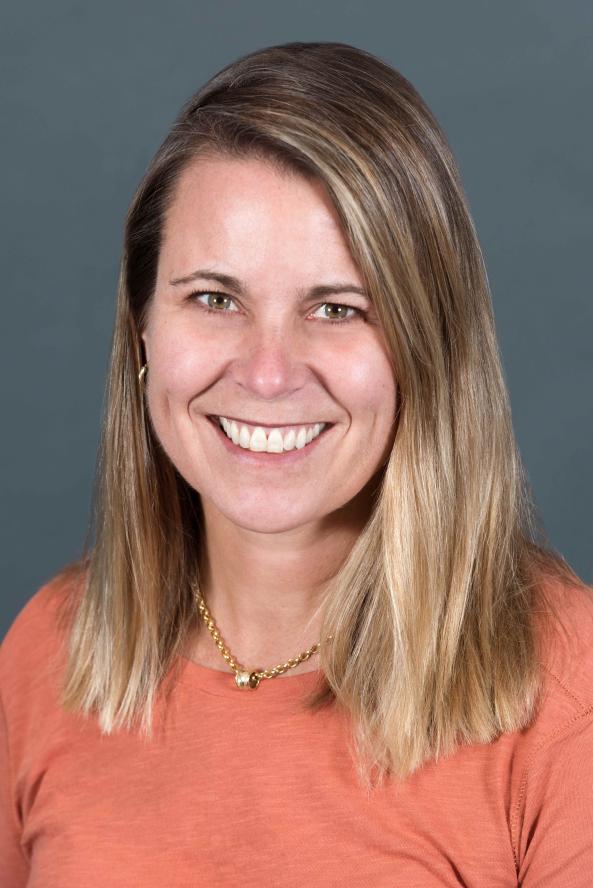Certificate in Assistive Technology
Tufts’ Assistive Technology Certificate Program (ATCP) is designed for working professionals looking to gain more experience and foundational knowledge in the field of AT, and graduate students in occupational therapy, other rehabilitation fields, engineering, computer science, education and child development programs interested in pursuing specialized training in this innovative field. AT devices and services promote active participation and quality of life of people with diverse abilities, across the lifespan, in self-care, social, communication, sports, recreation, work, school, and leisure activities. Students learn from and work collaboratively with people with disabilities in state-of-the-art makerspaces at Tufts and in the community.
ATCP's curriculum, offered predominantly in the evening to accommodate working professionals, prepares students for entry level practice as Assistive Technology professionals, and helps prepare them to take Assistive Technology Professionals (ATP) credentialing exam offered by RESNA (Rehabilitation Engineering and Assistive Technology Society of North America). The ATCP addresses the following 6 domains:
- Assessment of Client & Communities and their goals and AT Options
- Development of AT Trials and Intervention Strategies
- Implementation of AT Intervention in Natural Environment
- Evaluation of AT Intervention’s Effectiveness on meeting Client & Community Goals
- Professional Conduct of an AT Professional
- Evidence Based Practice in the field of AT (design, usability, assessment, and implementation of AT across the lifespan)
Program Requirements and Policies
- The Assistive Technology Certificate Program consists of 3 courses for a total of 9 credits.
Office of Graduate Admissions
We invite you to request information and learn about admissions process for our program.
Assistive Technology Spotlight

Learning By Doing
Lecturer and Founder of the Tufts Assistive Technology Hackathon Jennifer Buxton, MA ’03, is championing technical innovation and service learning on campus.
Course Requirements
Fall Semester
OTS105/ENP105 Assistive Technology Foundations (3 credits). This course covers the foundational knowledge in the field of AT, design and creation of assistive devices and the importance of focusing on the person with the disability during AT assessment, implementation and training. Students on inter-professional teams work collaboratively with people with disabilities in the community during field experiences and observations, with materials commonly used, to problem solve, ideate, design, and create assistive devices to help promote participation, quality of life and independence. Assistive technology legislation, funding and delivery of assistive technology, implementation services, evidence-based practice and outcomes are also explored.
Spring Semester
OTS108/ENP108 Assistive Technology Innovations (3 credits). Assistive Technology Innovations focuses on the amazing clinical applications of assistive technology to empower people with disabilities in accessing their world, increasing participation, affording greater inclusion, improving independence and optimizing quality of life. Emerging and innovative technologies are showcased and discussed via online modules, in person demonstrations, and multimedia instructional materials. Students critically review research and innovative approaches to improving activity performance and participation across the lifespan through the application of assistive technologies. Assistive technology, universal design and emerging practice areas in the field such as augmented reality, virtual reality, digital fabrication (such as 3D printing, laser cutting), app development, mainstream accessibility features, and alternative access technologies will be addressed.
Spring Semester or any semester afterwards
The 3rd course in the ATCP allows students to have flexibility in choosing either an approved elective Tufts course in the AT field or a Directed Study in the field of AT.
OTS194 Independent Study in Assistive Technology (3 credits). For students who want to focus more in depth on an Assistive Technology (AT) topic. Students identify and appraise the literature related to AT systems, services, devices, and policies in journals such as Assistive Technology, the official journal of RESNA, a peer reviewed applied, scientific publication in the multi-disciplinary field of technology for people with disabilities. The students identify and create a project or device that will involve preparation of a conference ready presentation and/or poster (mentored by Assistive Technology Certificate Program Coordinator).
OR
Approved Assistive Technology Related Elective at Tufts (3 credits). For students who want a broader sense of the AT field, they can take a course related to the field of assistive technology, approved by the ATCP Coordinator. The ATCP Coordinator will review with each student based on student interests, schedule and course availability.